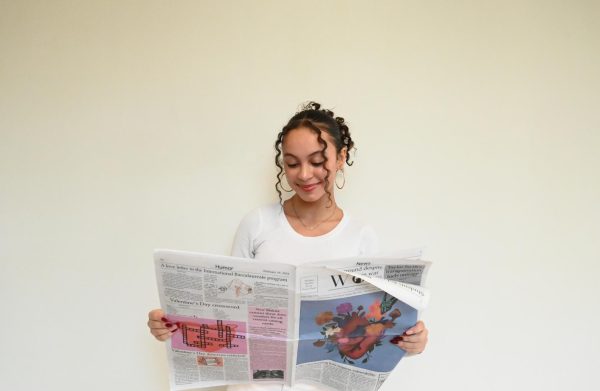Having good, long-lasting friendships is one of the many fundamental joys in life. When you have a best friend that you can truly count on and say anything to who is one of your favorite people in the world, it’s an amazing feeling. As time goes on, you continue to make your friendship stronger, you get to know each other better and you become more comfortable with them. But what happens when that person inevitably does something that you don’t love? How does that change your friendship? How does that affect communication? Where do you stand? This is where you find yourself in the duality of love and hate.
“The paradox of love is the more you get to know someone, the less you like them,” English teacher Shem Malone said.
As teenagers, we are susceptible to that more than at any other age. The early stages of a friendship are akin to infatuation. We find ourselves drawn to people because of the way they look, because they make us laugh, because they raise our social status, because we do the same sport or simply because we’ve known each other forever. These relationships, though, are built on thin motives, and often result in being easily strained when emotions like jealousy, competition and unspoken resentment are introduced.
As teenagers, lacking the experience and wisdom that adulthood provides, we can find ourselves going from friendship to animosity, comparing ourselves to the ones we once felt so similar to. We lack the ability to compartmentalize the moments that made us feel insecure about our friendships, to not judge a person based on their worst moments, but to be able to look beyond that to the human being that we ultimately love deep inside.
As a result, we begin to harbor a secret animosity towards them, and without communication we allow that feeling to grow. Because of our subconscious insecurity and desire for social validation, we remain close and, in effect, excuse the behavior that hurt us, therefore continuing the cycle that we will experience throughout our youth.
But friendships don’t have to be that way.
We can have healthy friendships, but it takes work and effort and ultimately realizing that fighting and having those hard and vulnerable conversations aren’t a bad thing.
“Love is not like the movies. With anybody,” Malone said.
In the end, the only way to have and maintain a healthy friendship is to communicate honestly.
“Communication in relationships is often a big key about how things continue,” Hausman said. “Communication allows for boundaries to be set and efforts to be made. Communication is that piece that either makes or breaks a relationship.”
As it turns out, love and hate are two sides of the same coin, which in time can enrich our friendships. Love is hard to navigate, but it is the driving force for all human beings and what brings us together.
“It’s possible that the more you get to know somebody, you may come to love them more, even if you start to like them less,” Hausman said.

